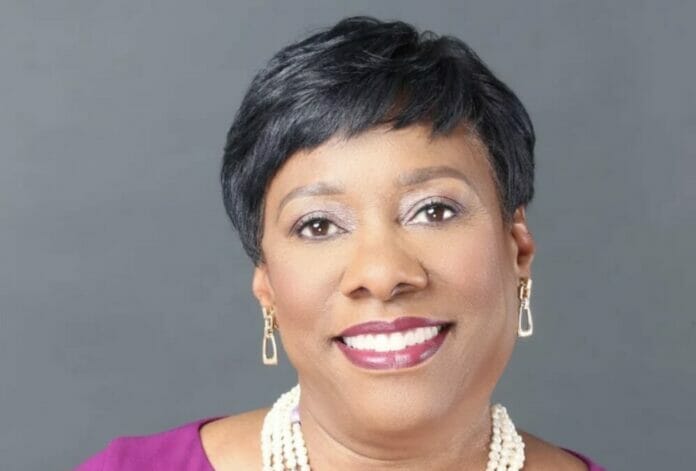As Covid-19 rages on, the NEA (National Education Association) stands in full support of students, parents, and educators who oppose school buildings opening before they are safe.
by Becky Pringle, President-elect of the National Education Association
As a middle school science teacher with 31 years in the classroom, I am grounded in the principles and laws of science. Still, there is one thing I know to be true: Educators are miracle workers.
This year, when COVID-19 closed our nation’s school doors, the miraculous skills of this nation’s public school educators were showcased for all the world to see. Without any helpful guidance, direction, or leadership at the federal level (and sometimes at the local level, too), educators labored to maintain consistency and compassion for their students. They transformed cafeterias into community food banks, created engaging online lessons, learned new virtual platforms, delivered packets of materials to student’s homes, guided parents in working with their children on their lessons, and organized drive-through neighborhood parades just to make contact with students and their families.
In many places, these miracle workers were educating students and supporting families despite the deep inequities that have grown from the seeds that were sown in this nation’s soil from the moment it was founded. When the pandemic shut the U.S. down, students living in historically marginalized communities—where challenges have been exacerbated by generations of systemic racism, classism, and inadequate funding of their schools—faced the biggest blow.
Far too many students don’t have the technology and internet access they need to continue learning at home. One in five low-income students have no online access at home. What about students who don’t even have a home? Twelve million K-12 students were already in the digital gap before the coronavirus hit. Imagine their plight now.
The coronavirus made clear that this nation must stop just talking about creating schools that serve the needs of students of every race, ethnicity, skin color, sexual orientation, immigration status or language. It’s time to do the work. We must demonstrate that we have the will to make the investments and do the critical work to address the gaps that are widening because of the inequities that have been built into interconnected social systems adversely compounding to impact the learning of far too many of our students.
These disparities became the fuel that drove the virus through Black, brown and indigenous communities nationwide, killing Black people at a rate that was 2.5 times the rate of their white counterparts.
Article continues after video.
Just as the pandemic worsened, the inequities faced by many students’ families—the employment challenges, the inability to access quality health care, and the environmental racism that so often taints the air and water in Black and brown neighborhoods—set the stage for the high number of lives these communities lost in the wake of COVID-19.
For all of these reasons, NEA stands in full support of students, parents, and NEA members who oppose the opening of school buildings before they are safe. We stand firmly against anyone who believes it’s alright to open even one unsafe school. And we are calling on districts and public institutions of higher education to address the twin viruses of COVID-19 and institutional racism in a systemic way that results in racial, social, economic and education justice. Our Black and brown communities deserve nothing less.
That is why NEA has created “All Hands on Deck,” a reopening guide rooted in these basic principles:
First, ensuring the health and safety of all must be guided by science—not by political leaders. Our Number One priority is the safety and well-being of students, educators and their families. So we must consider infection rates and the ability to physically distance, provide masks and other protective equipment. We must be able to sanitize regularly and do daily health screenings and testing. And we must have plans for when a student or educator tests positive for COVID.
Article continues after video.
Second, educators know what works in schools and what doesn’t. We must be part of decision-making and implementation.
Lastly, the pursuit of equity must lead these reopenings. That goal is non-negotiable. In June, the world watched a police officer murder yet another unarmed Black person. The brutal killing of George Floyd jolted the conscience of this nation and made it impossible to ignore that racial and social justice is an imperative.
We live in a time that is bursting with questions—many of them a product of the pandemic. Yet, many of them have been with us for years. They are the product of racist systems that have plagued this nation for over 400 years. As we chart the path to the future, every educator, district leader and policymaker must face each of these questions determined to find answers that will ensure every student and every educator can learn and work in a space that is safe, supportive, enriching and equitable. It is time for this nation to live up to its promise.
Becky Pringle, a science teacher from Philadelphia, is the president-elect of the National Education Association, the nation’s largest union representing 3 million educators, making her the nation’s highest-ranking African American female labor leader.
SOURCE: N



